
Botswanan trans-lesbian Prisca Mogapi knew he needed to come out to her family, but couldn’t find the right words. That all changed when a local newspaper outed him, thus jump starting his career as the African nation’s leading queer activist. Now Mogapi – who prefers to be called Skipper – works underground to fight Botswana’s queer repressions.
While we would have loved to sit down with Skipper, we had to settle for a brief, yet informative, email exchange in which Mogapi gabs about growing up in Botswana, how homophobic laws leave a lot of guess work and why the grass isn’t necessarily greener in gay-inclusive South Africa.
Read all about it, after the jump…
Can you first give us some background on your childhood in Botswana?
I was born in a small village called Gabane, which is about 35 kilometers from the capital city of Botswana. I am the third child of four: I have two elder brothers and one younger sister. I was born and raised by my single mother, but I spent more time with my grandmother.
Everyone in my family treated me as a girl child and they had a reason to rejoice to have a baby girl in the family. I grew up as a tomboy and my mother used to yell at me for playing with cars and playing football. When I was to start school, it was a problem because I was expected to wear a dress and I hated the dress. I hated it so much that I would rush home to change into shorts!
Can you describe your coming out? You said your family wanted you to be the “baby girl,” so it must have been a trying experience.
Coming out of the closet is not piece of fat cake. Everyone in school labeled me as lesbian even though I was not out. This really did not bother me – I took it as stepping stone. I did not know how to explain to my family how different I am to any other girls in the family. My family looks at me as a tomboy. My mother never thought there would be gay person in our family, although she knew about gays and lesbians. I never dreamed of telling anyone close to me, but the media disclosed me as they crashed the party that I threw with my partner.
The article was titled, “Homosexual party in Mmopane,” as well as my and my partner’s names in bold letters with our mobile numbers. When my family – especially mother – saw this newspaper, they didn’t want to hear anything from me for a long time. It was not easy. I was even scared to go to the shops thinking that people would notice that I am the person in the newspaper. Since then, I’ve started speaking out about LGBTI issues. I felt that there was a need for a voice, otherwise media will continue to mislead and continue to write articles that re-enforce stereotypes.
When did you first become aware of gay folk? What were you told as a child, if anything?
Well, I never knew the word used to describe gays and lesbians until I was 16 years old. I was at junior secondary school by then: most of the students used to make fun of me and discriminate me all the time. I was not aware of the words, but some students started calling me names like “faggot” and “gay.” I had to ask others what these words meant, so that’s when I learned. One thing that I do remember is that “gay” to the students was someone with both sex organs.
That’s a somewhat perfect segue for the next question: what challenges have you faced being trans in Botswana?
There are so many challenges I face as trans person in Botswana, like having to be stared at all the time and asked to identify yourself everywhere you go example using the public toilets, getting into a night club. At school I had problem with dress: I identified as a man and was expected to wear a dress all the time. It’s also hard to get a job. Although my papers show that am female, my physical appearance shows that am a man.
Do you consider yourself a religious person? If so, how do you reconcile your faith with a potentially exclusive religion?
I consider myself a religious person, yes. I was born and raised in a Catholic church, was baptized and did my first communion. My sexual orientation does not stop me from communication with God.
I am currently working for a non registered organization called Lesbians, Gays and Bisexuals of Botswana (LeGaBiBo). We’ve been funded by an organization called the Botswana Network on Ethics Law and HIV/AIDS since 2004. Although we are not registered, we are able to reach out the LGBTI community in Botswana.
What are your primary challenges?
Well, most of the LGBTI in Botswana are in the closet, so that makes it difficult to make programs and activities that would involve them. Also, most of the funding we receive are through BONELA and that limits us to activities that are around the HIV/AIDS.
When you look at Botswana’s so-called democracy, what’s the major flaw in their sexual policing?
As much as the laws in Botswana are silent on homosexuality, most people have different interpretation on the section 164(c) of the Penal Code of Botswana provides as follows:
Any person who permits any other person to have carnal knowledge of him or her against the order of nature, is guilty of an offence and is liable to imprisonment for a term not exceeding seven years”
There is no definition of ‘the order of nature’ in the Penal Code or the Constitution of Botswana. It is left to the ambit of societal moral values to determine what exactly is meant by “the order of nature.” Meanwhile, Section 167 provides that:
Any male person who whether in public or private commits any act of gross indecency with another male person, or procures another male person to commit any act of gross indecency with him or attempts to procure the commission of any such act by any male person with himself or with another male person whether in public or private, is guilty of an offense”.
Neither section 164 (c) nor section 167-mention homosexuality, yet their effect is to criminalize homosexual conduct. Criminalization of same sex activity has heaped all forms of conduct into one and labels them together as unnatural, immoral and against the order of nature. The legal mind is inspired into action by such misguided notions. Fundamental questions must be asked: What is immoral? What is unnatural? What is against the order of nature? Furthermore, what legal wisdom or authority is applied to gauge and determine the ‘morality’ and ‘naturalness’ of sexual orientation?
In your opinion, why do government and private officials continue to dismiss homosexuality as “Western?”
I think here in Botswana, the things we do not want to address, we would rather consider them as foreign. We do not want to be taken accountable for anything. A lot of issues are swapped under the carpet, because we consider them taboo.
If your rights are being violated or you can’t express yourself, why stay in Botswana? Why not move to South Africa or another more liberal nation?
Well, as much as the government does not recognize the LGBTI community in Botswana, I still feel that Botswana is better than South Africa. In South Africa there are high hate crimes even through the government protects the LGBTI community. A lot of LGBTIs from Botswana go to South Africa on weekends and during holidays to express themselves freely. While I go to South Africa frequently, I never thought about moving to South Africa. It’s not my home.

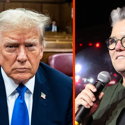
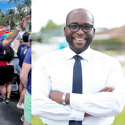
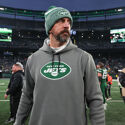











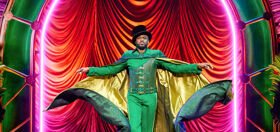


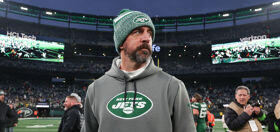
M Shane
The title to this article is misleading and perhaps even incorrect. The story is about a person who is has a genuine gender dysphoria based on exhibiting physical characteristics of both sexes. I think that the issues would apply to many transgenders-in this case the individual has sexual features of both sexes.
consequently, I’m not sure that it’s terribly fair to adress them initially as a “gay ” person, until they had made a surgical adjustment.
a gay person would have the opposite sexs’ desires only. In this case the person has to live in a society which applies a different set of oppressions than those applied to a gay person here.
In Botswana transexuals are called “gay “but not here.(I don’t know if there is a translation issue here or not.) Once he/she determined what sex seemed best and changed they could be gay or heterosexual (by our standards).
Jonathan Boland
I’m disappointed in the way this article was written with ignorance in regards to trans people. This article is disrespectful to the Skipper’s identity.
The person in this article identifies as a man. Therefore, the correct pronouns to use are he and him.
Also, lesbian is a term used for gay women. This person is a man, so the term is not appropriate. If Skipper is attracted to men, then he’s gay, if he’s attracted to women, he’s straight.
I hope the writer of this article reads up on issues facing trans issues, and that the ignorance stops with this article.
sokari
Added to Jonathan’s comment which I agree with, is the use of the word “gabs” to describe Prisca talking about his life story!
Shane @ you are using your own western measuring stick here “I’m not sure that it’s terribly fair to adress them initially as a “gay †person, until they had made a surgical adjustment.” surgical adjustment requires funds that Prisca may never have so does that mean he can never be seen as a “gay” person. Prisca is whatever he identifies as and not what you or I prescribe for him based on Western definitions.
M Shane
Sokari: Because I’ve worked in a surgical unit that did sex chage operations and have considerable graduate work in the regard of gender I’m not inclined toward any special prejudice.
The article itself is ambiguous as to what “gay” means and further difficult because there seems to be an undiscussed difference between what westerners regard as “gay” and what they do in Botswana.
Sorry if i’m not wandering though this the way that you would like.
Val Kalende
This article should have been a moving-story. But the writer keeps making careless mistakes of pronoun misusage albeit poor diction.
Nonetheless,i think the good activist is a force and an inspiration to reckon with on this continent.
I am proud to know her.
Liesl Theron
I understand the disappointment and mixed emotions when reading the comments (and the article) – as I experienced some of it myself. That being said, I want to add, to fully grasp the article in its fullest context, one has to understand how gay/ lesbian/ homosexual/ trans and all other “labels” are being used or not used in Africa.
The biggest mistake a person can make is to wear Western lenses when reading African articles on the topic.
In most African countries there is law against homosexuality, mostly acts like the penal code, laws against sodomy etc. What people don’t realise is, these laws are implemented for any person in the LGBTIQ coninuum. In other words a transsexual person (even if the person is for example a hetero mtf) will be punished by the same laws.
I used this example of the legal system to try and explain, that basically throughout the continent their is no difference between sexual orientation and gender identity. (Obviously there is people who views it as 2 seperate issues) – The mere fact that a person identify and uses the label of gay, lesbian or trans does not automatically mean they use it in the same way as in Western cultures.
It challenges awareness, advocacy, activism and education work in very extreme ways.
I am writing from an organisation, called Gender DynamiX – currently the only registered organisation in Africa, working on trans Human Rights issues.